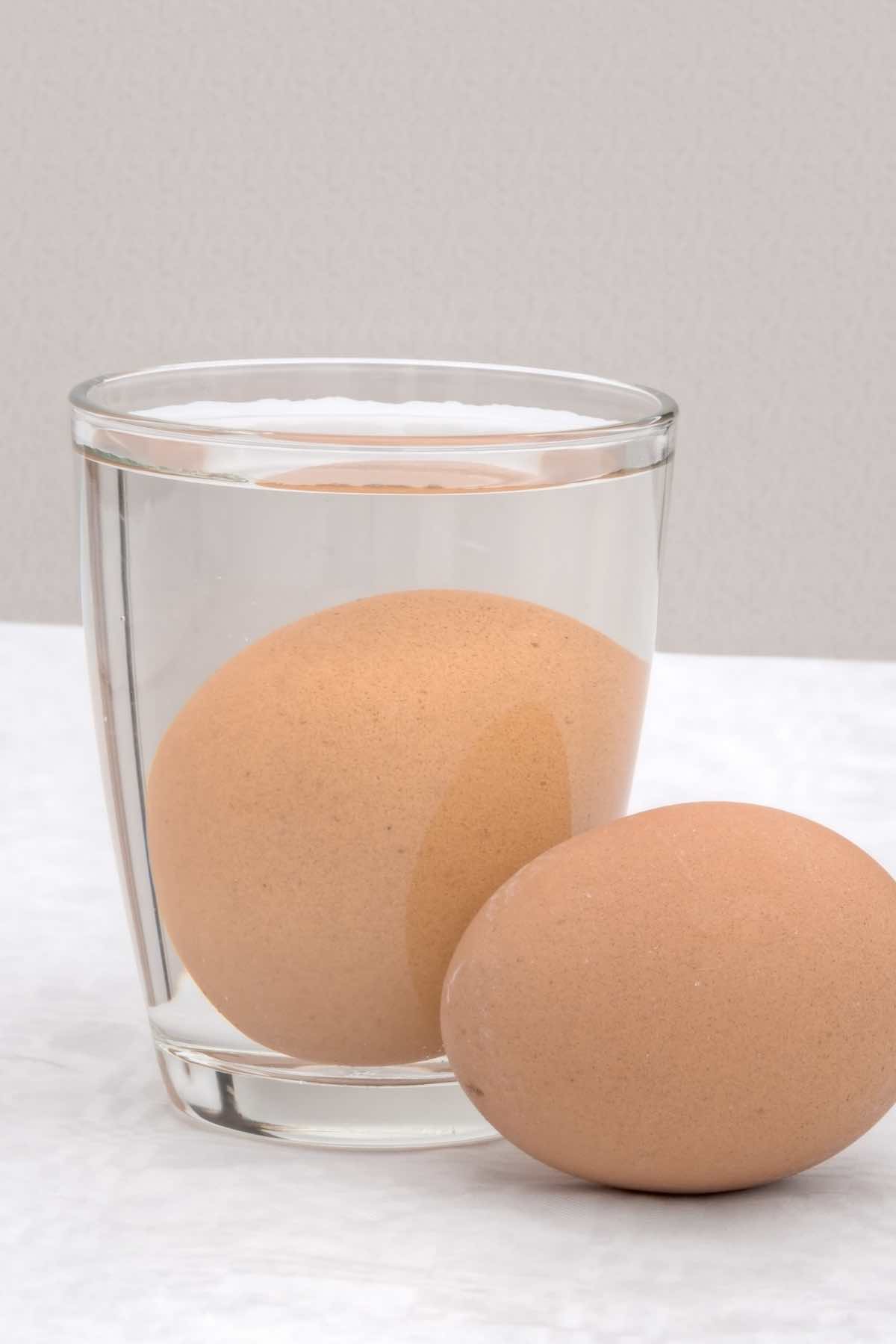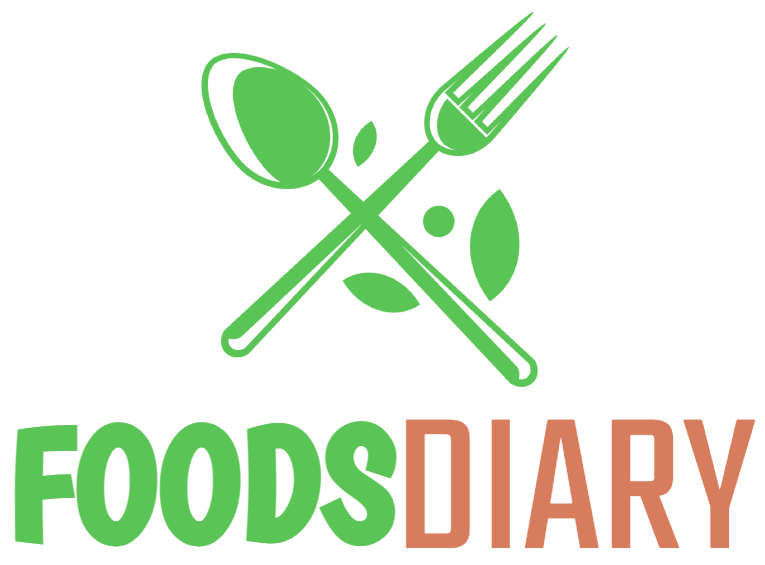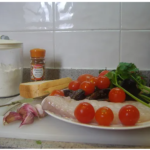Eggs are an amazing source of high-quality protein and fat and can help prevent disease, including heart disease. Their preservation is not a minor issue when consuming them, since eating a bad egg can cause serious health problems.

Do you have eggs in the fridge that have been for many days and you don’t know if they are bad? When an egg is left for a long time at a temperature that exceeds 10º, it is very likely that it will go bad. we give you some tricks to detect the state of this food and we explain how to know if an egg is bad to avoid possible poisoning.
Fresh eggs: how to identify them
Before explaining how to know if an egg is bad, it is essential to learn how to identify fresh eggs when buying them. In this sense, it is essential to check the expiration date of the eggs that appears on the packaging carton and purchase those with a later date.
On the other hand, since the expiration date does not always appear, you can check the laying or packaging date, which is what will mark the freshness of an egg. In this case, you should opt for those eggs with a closer laying or packaging date. Finally, check the shell to avoid very dirty, broken or damaged eggs.
How long does a fresh egg last?
An egg can last out of the refrigerator for 7 to 10 days. On the other hand, eggs in the refrigerator can be preserved for approximately 3 to 5 weeks. However, experts do not recommend keeping an egg past 28 days after lying, since from this moment it will already have lost many of its properties and will be closer to going bad.
How to preserve eggs?
The Organization of Consumers and Users (OCU) do not recommend leaving an egg out of the fridge for more than 2 hours, since it is in the fridge where it is possible to preserve its freshness as much as possible. In this way, we see that the best method to keep eggs fresh is by leaving them in the refrigerator but how exactly? When buying the eggs, you have probably noticed that they always have the same position inside the egg cup, right? Well, this posture is what allows the egg to correctly expel water vapor and absorb the gases it needs through its porous shell. If the position is inverted, the air chambers at the base, which is precisely the one that guarantees this exchange of water and gases, could be damaged and with it the content of the egg. For this reason, it is important to store the eggs point down.
On the other hand, since the shell is porous, it is not convenient to wash the egg with water, since this practice removes a protective cuticle present in the shell that helps prevent the growth of salmonella-causing bacteria. If you need to clean it, we recommend using a clean, dry cloth.
To preserve hard-boiled or cooked eggs, we recommend keeping them in the refrigerator for up to 7 days, either in their shells or shelled. Be sure to refrigerate eggs within two hours of cooking, and always avoid leaving cooked eggs refrigerated at room temperature for more than two hours. That is, once removed from the refrigerator, consume them as soon as possible.
If you accidentally freeze a raw egg in the shell, use it immediately after thawing.
How to know if an egg is rotten?
To know if an egg is bad, there are some signs that allow you to guess the state of its interior. Next, we explain the steps you must follow and the most effective tricks to determine if an egg is bad without opening it and when opening it:
Candle the egg
If you find a broken eggshell, it is likely that its interior has been contaminated, since the openings allow the entry of certain microorganisms that accelerate the decomposition process. To be sure, you can hold the egg up to the light and shake it in a circular motion. During the rotation you should detect that the yolk, against the light, remains in the center.
In addition, through this examination, when the egg is good, it is possible to see the different parts that make it up well defined. That is, the white is observed occupying almost the entire shell and the yolk in the center. When an egg is bad, the inside doesn’t look so clear.
Check if an egg is bad in a glass of water
If you don’t have adequate light or you still have doubts after examining the egg against the light, another very effective trick that will help you know if the egg is bad is to put it in a glass of water. If it floats, it means that the egg is in poor condition and in all probability it will have been more than a month since it was laid. On the contrary, if it sinks quickly, it means that it is a fresh egg. If it sinks but stays upright, the egg is not fresh and is starting to go bad. It can be consumed because it is possible that it is around 15 days after lying, although it is not the most advisable.
Without a doubt, this glass of water trick is highly effective in determining if an egg is expired.
Shake the egg
Another way to be sure that you are going to prepare a healthy dish free of impurities is to shake the egg you are going to use and check if you can hear the sound of liquid inside. If so, it will mean that the egg is in poor condition. Remember that fresh eggs have a white that occupies the entire shell, so nothing should be heard when shaking them.
Crack the egg and watch it
Another way to know if an egg is good is that, when you open it, the appearance of the egg white must be gelatinous and it must not present any type of impurities or stains. For this reason, if the previous tricks do not work or continue to generate doubts, the definitive test is to crack it open and directly examine the interior.
You should also keep in mind that the yolk of an egg in good condition should be centered and compact when it is cooked or fried. If when you crack it to cook it you see that the white expands, the yolk is not in the center or it flattens, the egg is not good.
Finally, to finish determining how to tell if an egg is bad when you open it, it is essential to smell it. If you detect a bad smell, the egg is undoubtedly rotten and its consumption is not recommended.
Yellow egg white, what does it mean?
Depending on the color of the yolk, you can also tell if the egg is bad or less fresh. Although we clarify that the color is not decisive for it, since it will always depend on the type of hen that has put it. What can tell us if an egg is bad or not is the color of the egg white.
If the white of the egg has some greenish or darker spots, then you should discard the egg because it indicates that it is infected by bacteria or fungi. Sometimes, after having cooked eggs and opening them, we can find a fine line in greenish tones but there is nothing to worry about, since the egg is still in good condition.
On the other hand, an egg white that is too liquid or yellow is indicative of an expired or rotten egg, so it is not recommended to eat it.
What happens if you eat a bad egg?
Eating a bad egg can be very harmful to health. In hot weather, especially when healthy recipes are generally prepared in the summer, there is a risk of contracting Salmonella if a spoiled egg is eaten, although this bacterium can be present in spoiled food at any time of the year. Year if the favorable humidity conditions have been given for it. If, in the worst case, you catch Salmonella, within a few hours the stomach pains and stomach infection will begin.
On the other hand, if you do not contract this disease, you can still have stomach infections, which cause vomiting and pain but do not last more than 24 hours.
Keep in mind that the elderly, children and infants are the most at risk of contracting severe salmonellosis, as they have an immune system that is either adrift or has not yet fully developed.
In any case, if you suspect that you have eaten a bad egg, it is advisable to visit a doctor as soon as possible.



